Centralised
Market-driven
The market thinks.
Everything is deliberate.

Welcome to Alpha
— a centralised, market-driven world.
Businesses have developed minds of their own. Large tech companies have grown into huge AI-powered behemoths that feed on the data of their comprehensive eco-systems. People are offered hyper-personalised services and products within the walled gardens of large corporations — often referred to as networks.
Networks can provide everything from housing and healthcare to entertainment and insurance but everything comes with a price and plans and premiums vary. You can seek out other networks but most people are simply born into one — not unlike a citizenship of the past.
How are we organised?
Centralised
The notion of state and geographic affiliation becomes redundant as human feel more connected to corporate providers.
What drives value creation?
Market needs
A state-run monopoly on public services was ultimately considered too inefficient and too big of a hindrance to innovation. It couldn’t compete with the personalised services and insurance policies offered by private companies.
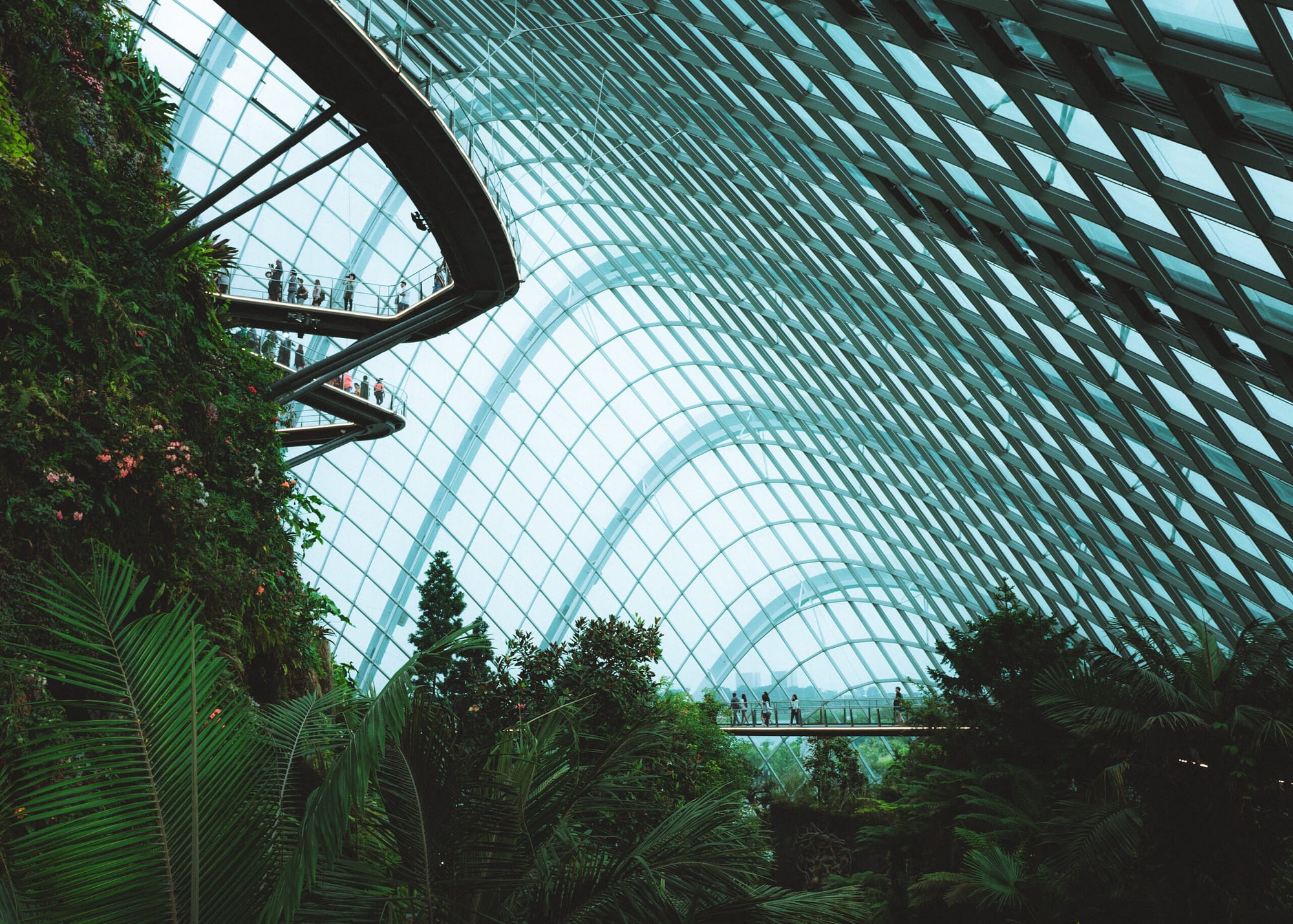
Large companies offer customers ‘citizenship’-subscriptions to extensive private networks of connected services — including services previously offered by the state
Corporate networks add a second layer of borders to the world and corporate authorities protect them fiercely
Sophisticated AI-powered businesses with rich data feeds are capable of automated decision making
Comprehensive corporate portfolios and tracking offer large conglomerates a realtime 360 view of their businesses and the users living within their closed eco-system
Nature is controlled, cultivated, and considered a privilege to experience
The divide between synthetic and natural is dissolving as technology optimizes and enhances processes
As cities grow and life is optimised space, air, and quiet become the ultimate luxuries
Ambience
Play the ambience music as you listen to the stories. The music will loop indefinitely.
Introduction
You can’t avoid recognising that the weather is perfect again today. There’s a subtle flicker in the canopies offering shade to the guests of the busy cafes along the boulevard. The sun is shining bright but neither your fluid balance nor any of your other metrics seem to have been affected by the heat. It shows how perfectly the breezes flow in this part of town even with such tall buildings; no wonder all the other networks try to copy the design of the area.
Everything is deliberate. All the smooth surfaces around you are constantly capturing additional data points: The sentiment of the discussions happening around the tables of the cafes, the kinetic footprint of your movement, the flow of traffic, or the hormonal micro-reactions of you experiencing the same particular personalised ad from your insurer yet again, prompting you to work out. The gym membership is already included in your current plan but they would like you to use it more often, and they try to convince you by visually reminding you of how much fitter you were a few years ago. Everything is being tracked and used to optimise the experience and automatically decide what happens as you turn around the corner.
Corporations have grown into complex world-spanning organisms. Underneath the attentive services are AI-powered behemoths: The companies feed on data and evolve and adapt organically based on what their vast network of data sources, sensors, and simulations sense. Much like in a living creature, the neural networks of these corporate entities are quite capable of making their own decisions; be it about production, development, design, distribution, or marketing. Only the fiercest survive — and that ferocity is all about knowing the prey and hunting grounds and adapting better than the competitors.
You might not see it at a first glance but the power dynamic has changed dramatically over the last few decades. Power is steadily gravitating from government officials towards corporate leaders. A state-run monopoly on public services was ultimately considered too inefficient and too big of a hindrance to innovation. It couldn’t compete with the personalised services and insurance policies offered by corporate providers. Those who can afford it enjoy rich, healthy lives within the walled gardens of corporate ‘network providers’ including access to fully-serviced communities like this one; complete with seemingly public’ spaces and transportation for their members.
Young people find it cute that passports used to just be tied to geography and belonging to a ‘place’. The state’ is becoming less and less important in the day-to-day life compared to the network you belong to. You knew someone who had their comfy plus plan cancelled after a messy divorce. They couldn’t afford the new premium and had to move to another part of town and take their kids out of school; something about the circumstances impacting the risk ratings. It wasn’t even one of the religious communities, it was just a matter of statistical analysis. Imagine suddenly being disconnected…
Stories
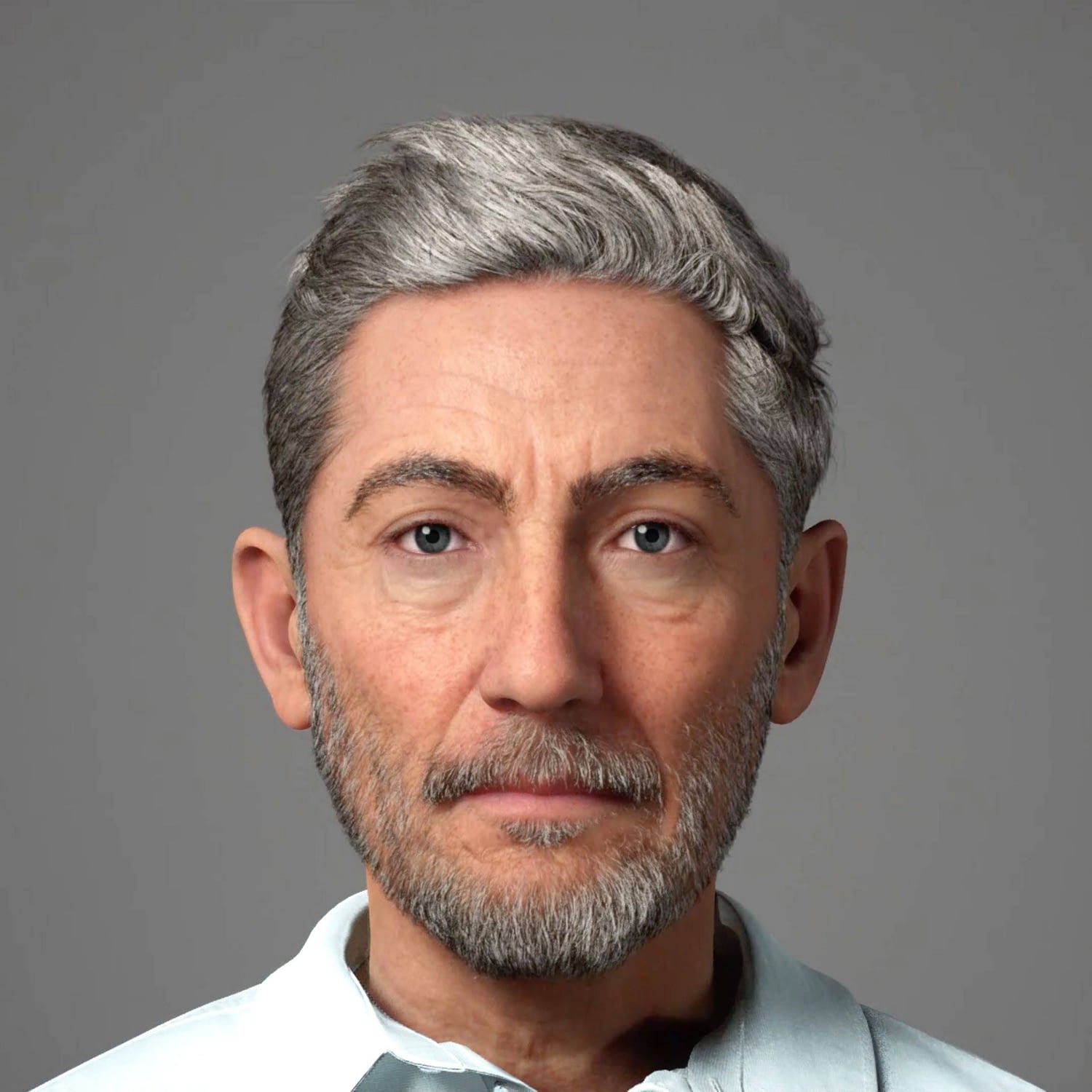
Dominic
Dominic recently got a new job in manufacturing.
I was recently reassigned to a new division within the company. It’s a new team overseeing the automated production of limbs for synthetic support animals. Apparently, corporate intelligence saw me as a great candidate. No one knows the specifics but they highlighted my passion for bird watching. I recognise what looks natural, they said. I’m fortunate to be on a network with a generous pension plan but I can’t see myself stopping anytime soon — and with the new biotechnologies, I don’t have to.
As part of the relocation, they offered to upgrade my bio lenses so I could take full advantage of the new augmented office spaces. The lenses came with an upgraded cognitive implant that stimulates my other senses too and heightens my awareness. Our office is a box with glass on all sides but simply by thinking it, I can move it to a peaceful forest, our virtual corporate campus in the Alps or our automated production facility almost twenty-thousand kilometres from here. If I need to inspect or interact with anything on site I simply link up with a drone.
Our production facilities used to be based closer to here but a few months ago it was moved. Pretty much overnight. Two weeks later we were up and running thousands of kilometres away. A few days later the country we produced in before was hit by a devastating hurricane putting a sudden halt to most activities. The AI might’ve seen it coming.
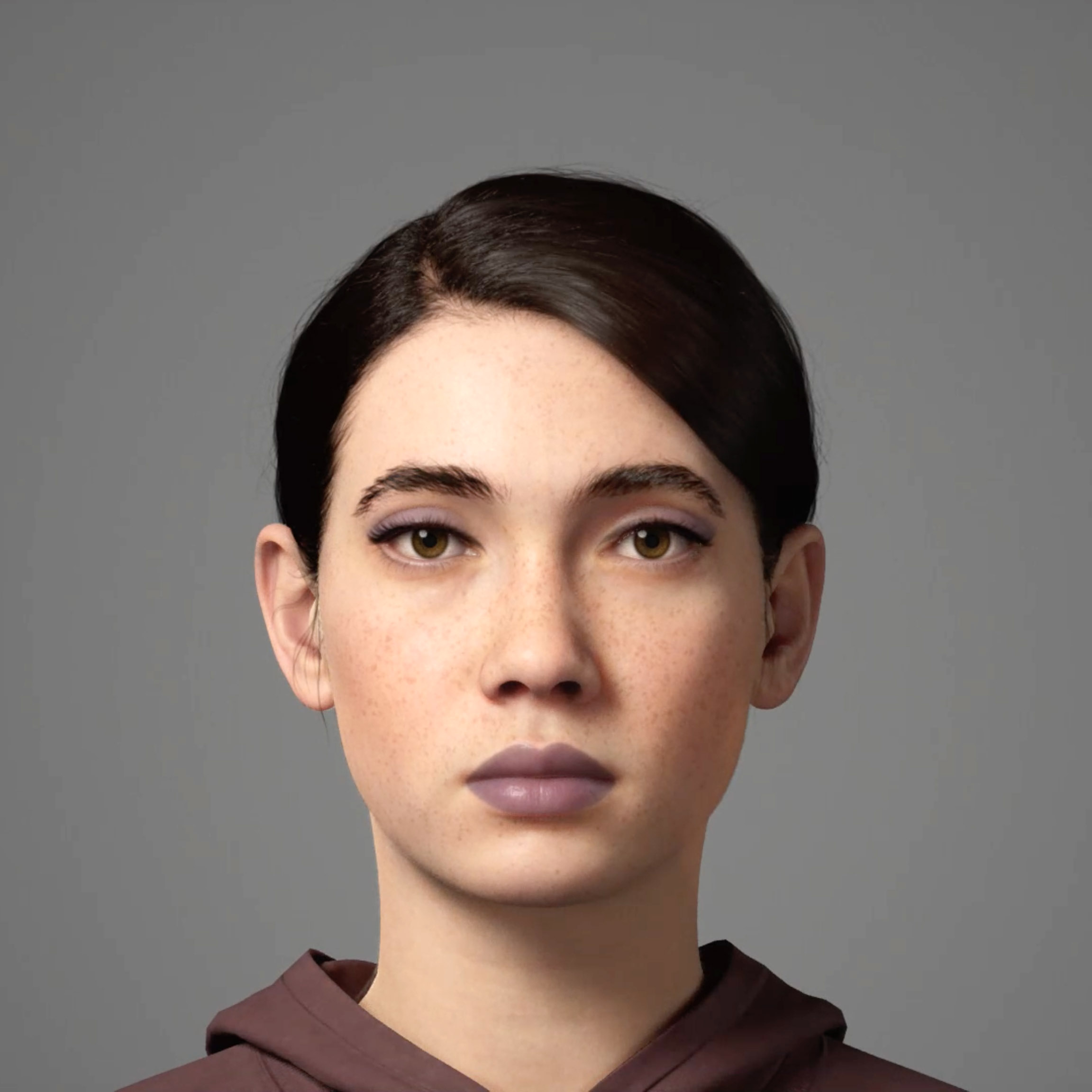
Olga
Olga works in distribution.
Our network has a global reach and shipments come from all over the world. I’m not a scientist but as far as I understand it, then the AI is aware of every single shipment, what it contains, where it is going, and the estimated delivery time down to a few minutes. It is constantly reevaluating its route, taking everything into consideration: The vehicle, the packaging, the weight distribution, the path through the sorting facility, the traffic, and even the weather.
Most of our shipments are handled during the night so we always have a few people here. Back in the days, it would’ve been my responsibility to plan the shifts but the AI does that automatically according to data on our staff. Stuff like their history and performance, current hormone levels, sleep- and productivity patterns, and stuff like that. It’s great as it makes everything much more flexible. It can instantly adapt if something happens or someone is home sick. For example by reworking shifts, rerouting traffic, or hiring new staff within days.

Imaani
Imaani is a risk evaluation specialist working far and wide.
I’m part of a security and risk analysis team in the personal mobility division of one of the big corporate networks. Our team is focused on the risk factors relating to our manufacturing processes. We stress-test the security around the production system to make sure no external event can disrupt its functions. We have to make sure that the AI knows how to make the right decisions if things are about to go wrong. A lot of money is at stake so we have these practice matches against the AI as a way of testing its strategies.
Corporate intelligence has a good picture of almost all the risks but it can struggle with humans. This wouldn’t be so much of a problem if it wasn’t for an old international convention that mandates that humans are ultimately able to override any AI decision. In practice, it doesn’t change a thing about how things operate. The AI still runs the show on its own. What it does change, however, is that all sites need to have a certain number of humans “man the desks” so to speak. They need to be able to shut it all down, alter the decisions of the AI, and access all data feeds. This is obviously the biggest security vulnerability. People seem to like the idea that there is a human at the other somewhere even though everything that goes on is completely unfathomable to the human brain. The AI does a good job vetting the candidates but still, the risk of social engineering, data leaks, and corporate espionage is there.
I have to travel a lot, as data shows the biggest weakness is physical interactions. Our network has one of the most extensive transportation networks in the world so it’s pretty easy to get around. I usually have my own comfy premium pod. It picks me up at home and the AI decides what the best route is. Most often the pod heads to the closest jump station which then launches it into the hyper rail network but not always. Sometimes air travel or local rail or road systems might be necessary depending on the location. I even once had to be picked up by someone in a manual car to get to a site in the mountains — that was pretty nerve-wracking. Traveling so much isn’t as bad when you have premium solo pods — I do feel sorry for the people who have to make do with shared travel solutions though.
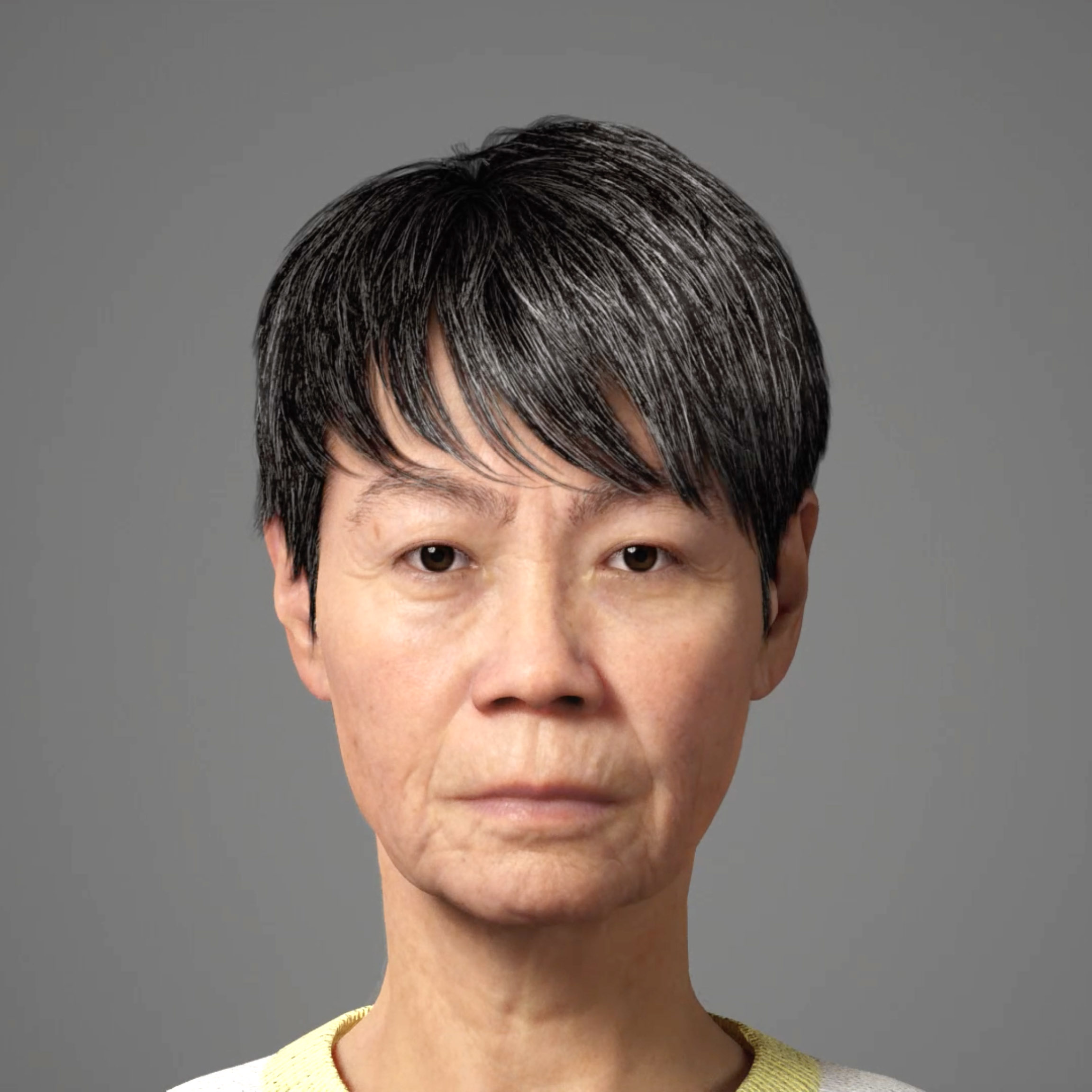
Hitomi
Hitomi leads the production of welfare technology.
Back in the days we’d be in the lab for months tweaking a new prototype. Today, much of that work is done by the AI. We simply stimulate the AI with new input and follow along as it designs, simulates, and evaluates thousands of new prototypes every day. Our dashboard shows us what it data is being pulled. Recently, our AI has been requesting access to a network of nano sensors collecting data on the micro-migration of insects. It seems to be learning from their movement patterns. Generally, we oversee the process and occasionally have to accept major revisions but the entire process is otherwise fully automated from research to production to marketing.
The focus of our industry has changed as well. It used to be about lifting people up and providing equal opportunity. Today, I’m concerned about whether we’re simply helping people get ahead. Performance-enhancing implant and aids for rich people who don’t suffer from disabilities of any kind. I want to balance it. I care a lot about how our products can have a positive impact on not only the lives of our premium users but also those less fortunate. I’m proud of the corporate charity programs I’ve helped establish.

Henry
Henry experiences what the city has to offer.
Wow, I can’t remember being this excited about something. I almost feel a little bit guilty.
Tonight is the first night in a long, long time I’m going out. Ever since my partner and I split up, I… I’ve been trying to get by on the most basic of basic plans. I guess you understand why entertainment isn’t much of a priority when you’re worrying whether the corporate charities will hand out enough soy meal this week for you to make it through.
But, you know, not tonight! I’m going with a friend. We’re watching a show with the virtual band AISY at the INO Arena down by the waterfront. The arena is on the other end of town, and without a premium plan, my transportation options are limited to the free — but slow and utterly terrible — ad-supported services. If you haven’t tried it, you might ask “what’s the big deal?” Let me tell you: Those personalised ads are something else. They’re so incredibly invasive. The last time I took the bus, I had an ad for a plastic surgeon that scored my face and compared my features to the face of my ex’s new boyfriend — who apparently is 32% more attractive than me.
It would’ve been a nightmare getting there, is what I’m saying. But, my friend works for the INO corporation and set us up with a private ride! It has been years since I’ve been in one of those and I almost cannot wait to ride through the city without every surface trying to sell me supplements or dating services.
Anyway, AISY, the band, is one of the most successful AI-pop acts around. The first generation of virtual AI acts was simple, like a single AI creating music based on what’s already out there. AISY is different, it was the first band with multiple AIs working together. They weren’t just trained on music but also on a huge collection of old 20th-century cartoons owned by the same company.
Human musicians are getting more and more niche. They can impossibly draw on the same amount of inspiration and human work can seem a little banal in comparison to the originality of the most advanced AIs. Humans can’t release new stuff at the same pace or match the insane over-the-top visuals we’ve gotten used to. But… We’re still, as a society I mean, trying to figure out if art still holds the same meaning when it is made by a computer. Like, is it beautiful and profound or just an impressive, calculated fake of an inherently human process?

Karen
Karen participates in recreational activities.
Oh, sorry for the rush. I’m late for basketball practice. I’m supposed to be meeting up with my team down by the gym in 5 minutes. We have a big match on Saturday!
I only just joined the team last year when I changed neighbourhood. I got a new job and they offered to upgrade my plan. I was a little anxious about moving but it was super easy to get settled in. My virtual assistant, Issa, walked me through it all. I didn’t know anyone here so she suggested picking up basketball again. She found the right team for me. She knows me better than anyone: My personality, how well I played in high school, my fitness, biometrics, all sorts of things. Hah, she even teasingly asked me if I was looking for romantic relationships. I said why not. She has yet to deliver on that but you never know!
We’re coached by this awesome AI called Yuki, she’s a lot of fun and doesn’t take things too seriously. We have a lot of fun. Every other weekend or so we face off against another team that is approximately on our level. We’ve matched automatically. Basketball is growing so there are plenty of teams around to play physically but we’ve played a few international matches virtually. I remember our first game so vividly! Like, we stepped into this black room. It was completely dark for, I don’t know, several minutes maybe. I didn’t know what to expect so I was completely floored when all of a sudden the lights turned on and we were in a massive arena. There were cheering fans, loud music, it was crazy! It was all fake of course but still really fun. I don’t know how it works but wow. It felt real.
So, over time I’ve gotten very close with some of the people from my team. I feel like they’re quickly becoming some of my best friends. We often hang out, go out for drinks after practice, go to concerts, shows, and so on. I know some people kind of struggle with the idea that in today’s world, we’re often deliberately brought together by AIs based on our data. I don’t know. Is it really cheating or just a more efficient way of finding friends?
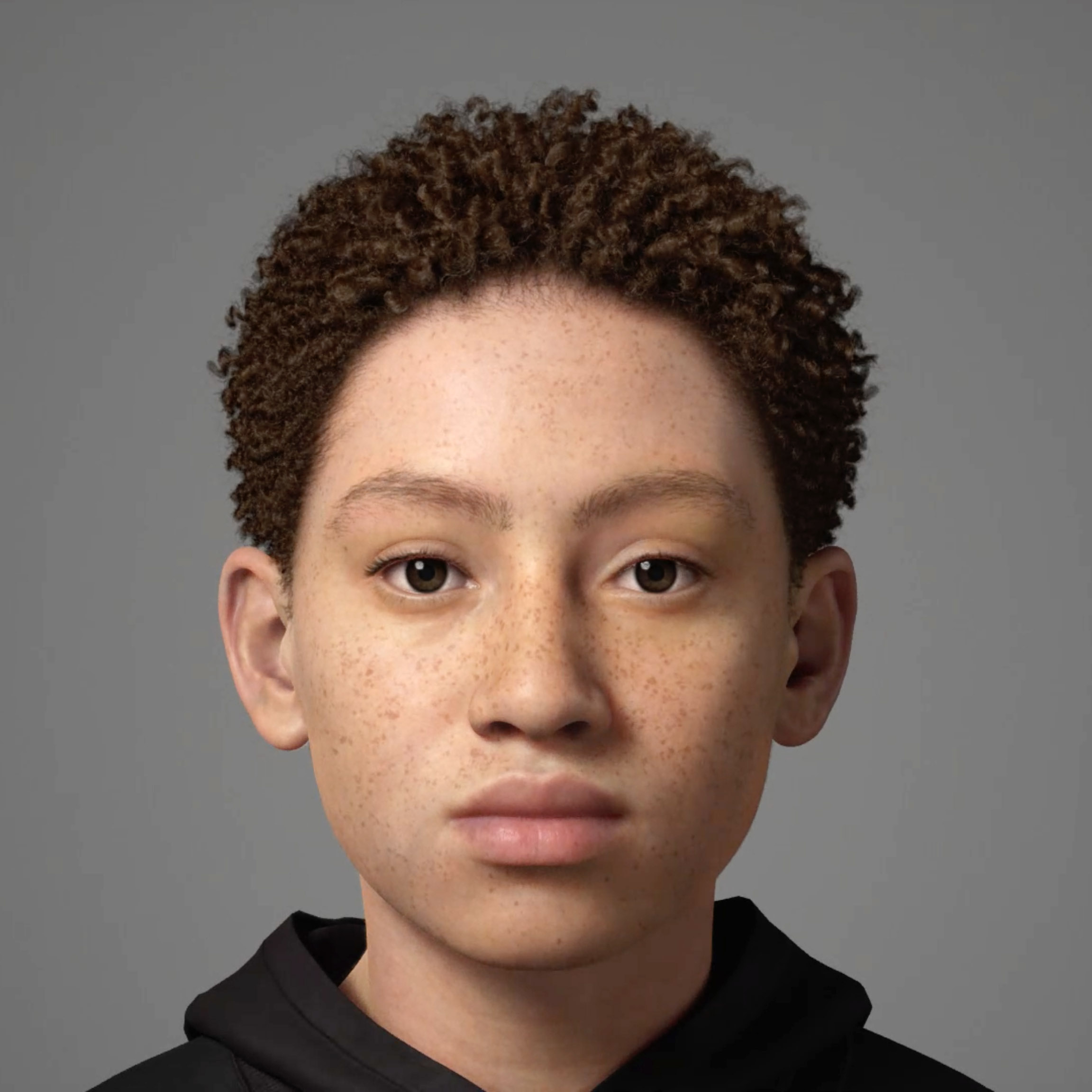
Tom
Tom dreams of a different society.
Just a second, let me just turn off my devices, probably best if they don’t hear this.
Staying hidden is harder than most people think. We have to leave all connected items and clothing behind when we meet up. We’ve even had to make a lot of new stuff ourselves. Sewing clothes and printing shoes without sensors. On top of all that, we have to maintain convincing data doubles to avoid being detected. Basically, making sure that we leave a data trail that makes us look boring to the AIs.
The big corporations want to make us believe that they’re the only reason we still have a liveable planet. That we can only survive as their users — but I don’t buy that! I want to be part of something. A life that makes sense. That’s really what the ReWorld Community is all about. We’re a global group dreaming of a fresh start on Mars. We’ve all signed up for the same colonization program and once we get there, we’ll— uh, peacefully overturn the local government and finally get a chance for a real fresh start.
It will still take a few years until it’s our turn. Until then, we can only plan and prepare. We try to cover everything we need to build a healthy and sustainable society. Over the last few weeks, I’ve been digging into the history of the open-source movement and the technology and infrastructure for distributed manufacturing. I think it might show a way forward when we get to rebuild on Mars.

Wojciech
Wojciech deals with the health system.
I had a lot of questions for my consultation earlier this morning. “What are you going to do to me? Where do I have to go? How long will I be gone for?” The so-called Health Companion on the screen just smiled and said “Oh Wojciech, you don’t need to go anywhere. You have access to remote surgery. You just have to sit back and wait, and it’ll all be over before you know it.”
I’m not sure I trust it. I’ve had a few meetings with actual humans and they all say I’m not sick. That it’s all preventative care. But, I don’t know… They’re nice and all but the smiling and nodding is a little nauseating. I grew up with doctors and nurses being constantly busy, and now they just sit around like they don’t have anything more important to do than hear about my uneventful breakfast. I’ve told my kids that they’re throwing their already limited money away on this but they insist. I can only imagine what kind of insane premiums they’re paying. I know a few folks who aren’t so lucky to have relatives that can help out. It’s rough. They can get emergency care but that’s pretty much it.
Anyway, the doctor told me that a small robot will come knocking at my door later in the afternoon. It will have all the required tools to perform the surgery. I almost snorted out my tea. Apparently, human doctors are no longer used for this procedure. Instead, the robot will inject thousands of small nano-thingies with tiny little lasers into my body. They’ll be buzzing around in my liver for a few days until they exit the old-fashioned way.
I miss the times where you had to actually fight the system. Back when it was people making the decisions and not just a complicated math equation…
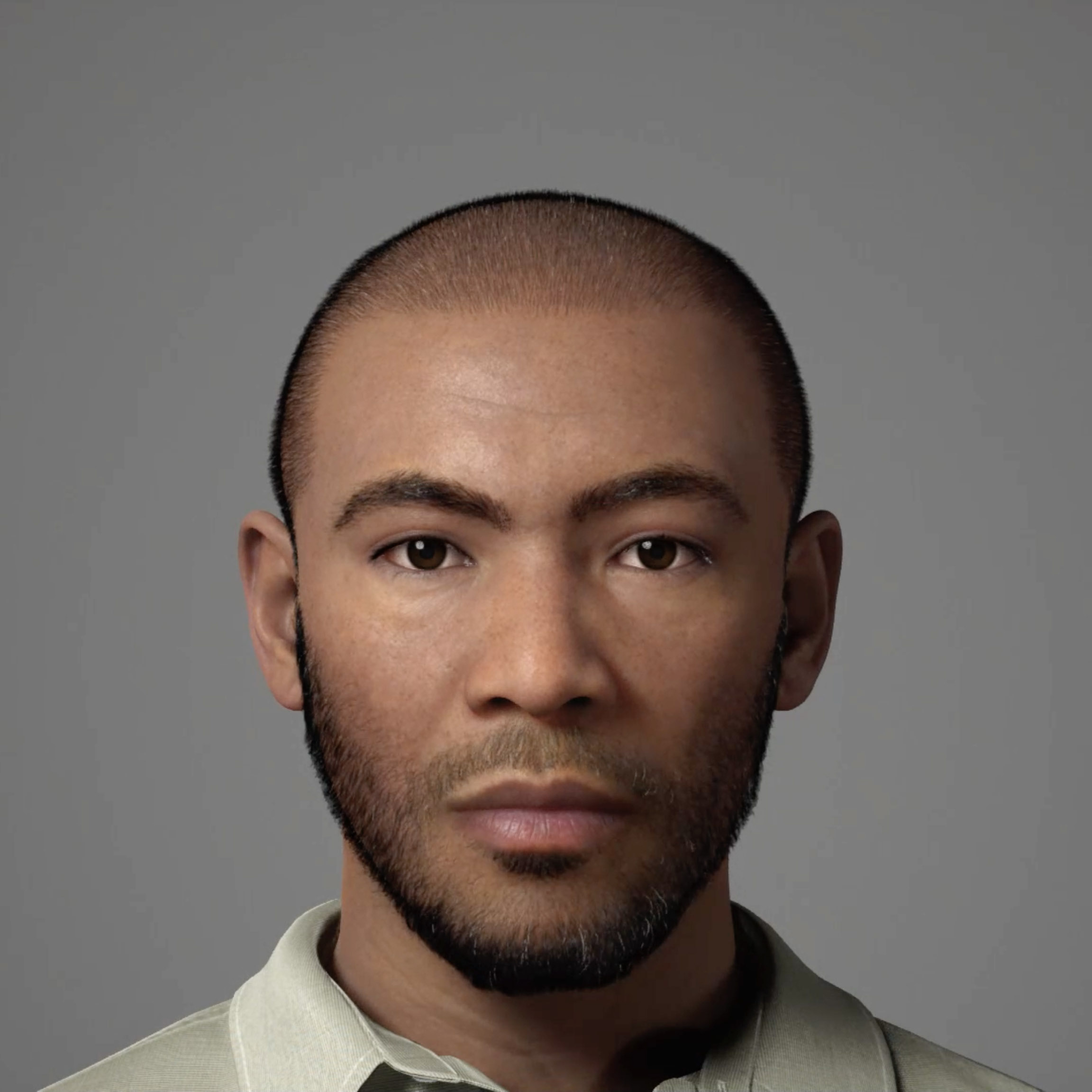
Jamal
Jamal helps people find new jobs. He’s a single dad to a child struggling with anxiety.
I’m a career consultant on one of the big networks. The company is huge and offers everything from housing and transportation to personal AI solutions, insurance, and everything in between. My job is to help our users find new opportunities — the service is included in most semi-premium plans. We do this by looking at their ProGenome™. A complete profile put together of everything they’ve done so far, their cognitive profile, their behavioural data, their biometrics, as well a range of other proprietary subconscious indicators including dream data. The AI uses the ProGenome to match the candidate with potential career opportunities. If we identify potential opportunities for improving their ProGenome we can suggest training, therapy, implants, or even new hobbies.
Work is a critical part of your identity. Your success is a measure of how good you really are — so getting fired can be devastating. I feel sorry for the people who cannot afford more than a basic plan and have to do without the help we’re providing.
As a single parent to a kid suffering from high levels of anxiety, I know how hard it can be to stick out in this day and age. If we hadn’t already been on a network with great coverage for that sort of thing we would’ve been out of luck. We have access to excellent therapy and various other services but I’m still worried about what happens in a few years when he not only outgrows my plan but has to start applying for schools and jobs. The thing is, everything is decided by data. It was supposed to be impartial and unbiased but it is just so opaque what happens behind the screens. Back in the days, you had to look someone in the eyes when you rejected them, knowing it was your decision. Today, everything is handled by an abstract system. You can just point your finger at the screen, shrug, and say you’re sorry.
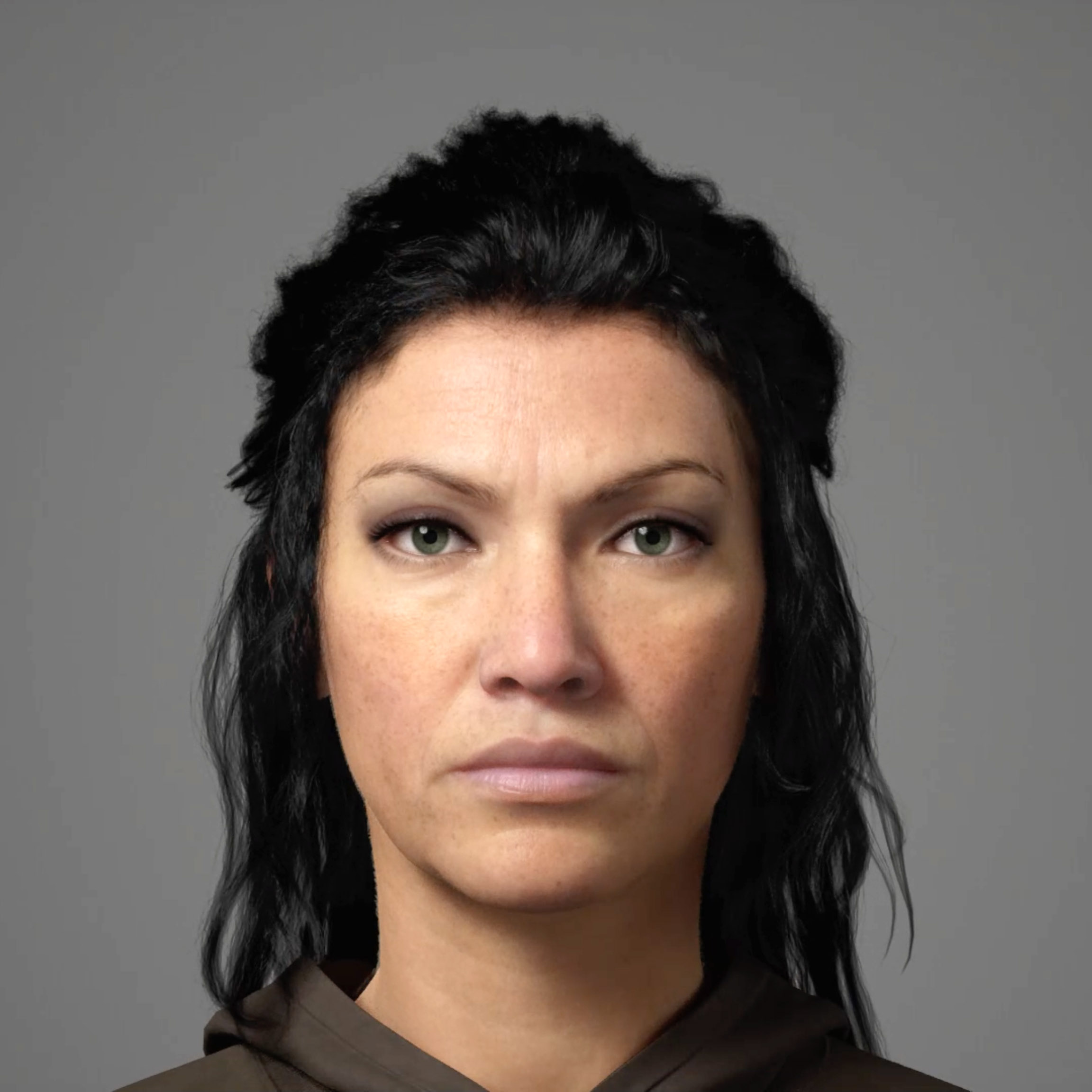
Rita
Rita lives with her family in a small community and works remotely as a surveyor.
I actually grew up on this island, and after I finished school I moved back here. Today, I work as a site inspection specialist for one of the big tech companies. I inspect sites that are being considered for new investments like construction or resource extraction. Typically, the AIs are surveying most sites on their own through drones and satellite imagery but oftentimes they flag particular sites for human inspection, meaning a human pilot is required to inspect. This is typically in case of an anomaly or a very complex site.
I do all my surveying work from home. Today, all surveying is done remotely. It was one of the reasons why I chose this career to begin with. Before I started school I wanted to try living in the city and it wasn’t a great success, to put it mildly. I ended up spending almost every waking moment walking around the island in a virtual world. Kind of seemed like a waste of time when I could just move back home. And so I did.
I still check in with my colleagues at the virtual office in between inspections so it’s not like I’m missing anything. I definitely don’t miss going to a physical office. I mean, with the new generation of tech, the virtual office feels as real as any — with the added bonus that I can simply shut down my colleagues whenever I want to.
I don’t want to let my career dictate where I live and I don’t have to. It’s much more meaningful to me to live out here, closer to nature, and to where I grew up, even if it means only ever having access to rural basic plans with very limited coverage. We don’t have the same weather protection tech out here, either. When the vicious winter storms hit and we all have to make way for our shelters then sure — I do wish for second that I’d stayed in the city. But no. Many people are shocked when they hear it but I grew up on this island and I’m not giving it up — even if our network provider is constantly limiting our plan in an attempt to pull us into the city.
Portraits by MetaHuman Creator



